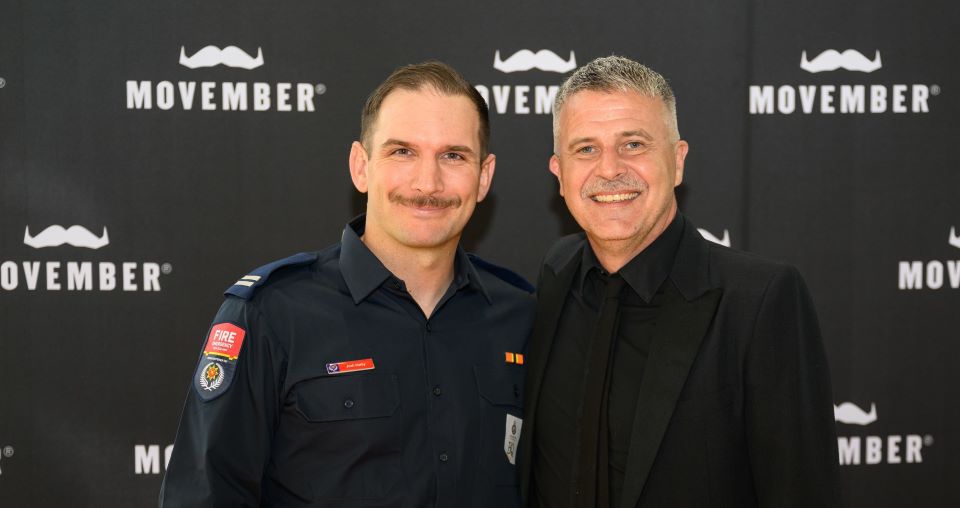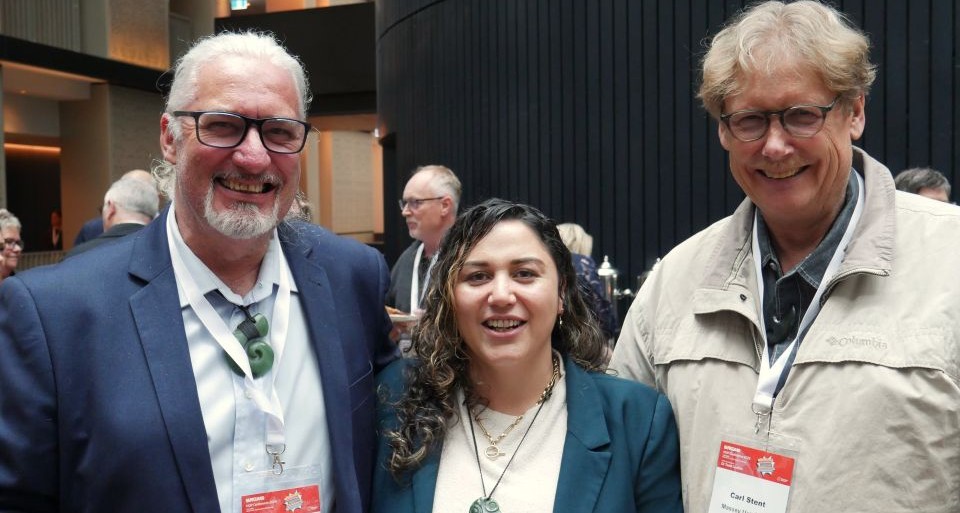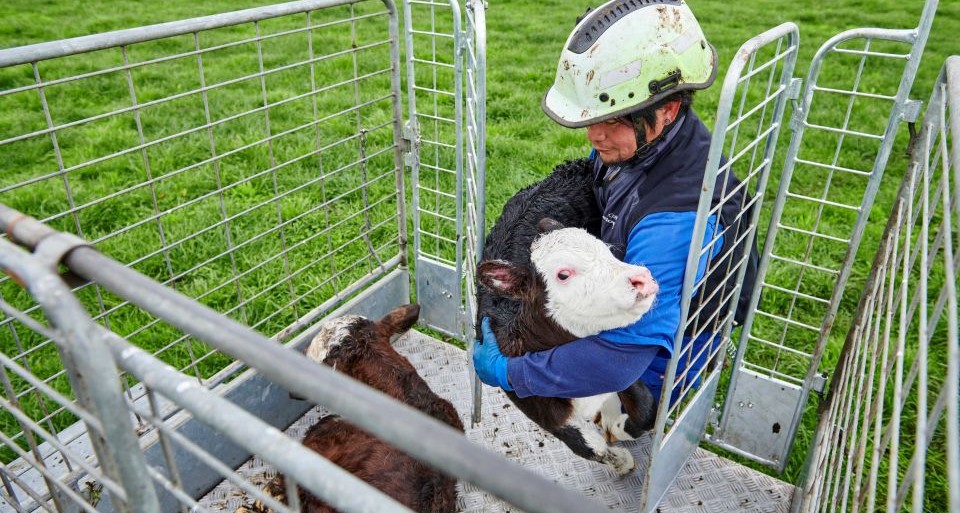As a firefighter, Josh Darby has long been exposed to critical incident stressors, but it’s the impact of organisational stressors and whanaungatanga – the sense of connection and support – which drives him today.
“Critical incident stuff isn’t going to go away for first responders,” he says. “It’s part of the role and a non-modifiable variable. But the organisational stressors – they’re something we should be able to do something about.”
A senior firefighter, for more than two years he has spearheaded Fire and Emergency New Zealand’s Whanaungatanga programme, engaging with workers to identify organisational factors which are impacting mental health – an area international research has identified as a concern with first responders.
This programme of work, led by firefighters for firefighters and underpinned by an evidence-based approach, has seen surveys and focus-group-style workshops identify a number of interventions now being implemented.
Darby, whose work with FENZ saw him take out the Mental Health Champion category at the 2024 NZ Workplace Health and Safety Awards, is open about his own lived experience of psychological injury, which manifested in his mid-20s and included anxiety, depression and suicidal ideation.
“I thought I was the only one in the organisation who might be dealing with that, and I didn’t want to tell anyone what I was going through for fear of what they might think of me – that it was a character defect.”
When Darby did reach out to another firefighter he was connected with a clinical psychologist and soon discovered an interest in psychology and trauma.
“As firefighters you have to be pragmatically minded. You have someone trapped in a car and part of your job is figuring out how to extricate them. That part of me was engaged psychologically – I’m in this situation, how am I going to extricate myself from it? How did I find myself here in the first place?”
Research into practice
A firefighter’s scholarship enabled Darby to explore what might be contributing to suicide and psychological injury within FENZ. He undertook post-graduate study and research and in a 2019 report he examined the antecedents of suicide, psychological injury and maladaptive behaviour within FENZ, while also examining what could be done to improve psychological wellbeing.
A Movember Veterans and First Responders Grant, along with FENZ funding, enabled Darby to put the research into practice with the Whanaungatanga programme, which aims to improve first responder wellbeing through organisational changes promoting connection, trust and a strong sense of value and wellbeing. The programme was stood up in the “tense” aftermath of industrial action and won support from FENZ, the NZ Professional Firefighters’ Union and the Fire Emergency Commanders Association.
“A tagline for the work we’re doing is we’re trying to change the work, rather than changing the worker,” Darby says.
A nationwide trust and wellbeing survey of FENZ employees, developed with the assistance of Professor Robert Eisenberger, the originator of organisational support theory, was run in March 2023, providing FENZ with its first “really robust” mental health outcome prevalence data.
The results were “pretty confronting”, showing one in three firefighters screened for one or more symptoms of mental ill health, including PTSD and moderate to severe depression or anxiety.
Organisational factors
The results were analysed by AUT to identify relationships between organisational factors and mental ill health outcomes. Sure enough, there was a relationship between exposure to critical incidents and the likelihood of mental ill health.
“But what was really interesting and novel in some ways,” explains Darby, “was that the organisational factors – like perceptions of accountability or support – were more strongly related to mental health than the critical incident exposure.”
Firefighters who perceived the organisation didn’t value or support them were almost three times more likely to screen for mental ill-health than those who felt valued or supported.
“That was a really important part of understanding that there really are these strong connections between how an organisation facilitates trust and support with the people who work for them and the relationship between that and mental ill-health.”
More than 40 workshops, involving around 500 firefighters and commanders across the pilot region of Auckland and Whangārei, were held to flesh out the details behind two apparently contradictory colloquial sayings within FENZ: “This is the best job in the world” and “The job is fucked”.
“We wanted to know what factors made people feel like the job is fucked, but also what factors lead them to feel it was the best job in the world.”
Firefighters were asked to link those experiences or perceptions of the organisation with feelings or needs.
“If we just went to the organisation and said ‘your people think you are shit and don’t care about them and you’d better do this’, we were probably not going to get a lot of buy-in for our interventions.”
Absence or surveillance?
As an example, Darby cites the use of an absence indicator, based on the Bradford Factor and implemented as a wellbeing tool, which scored staff depending on the type and frequency of leave taken. It was repeatedly flagged in the workshops as violating whanaungatanga and was landing not as a wellbeing tool, but as a punitive surveillance tool.
“They talked about betrayal, resentment, anger. And when we asked them to name the needs that were unmet as a result of that tool, they talked about the need for support and to be able to trust the organisation, and to have compassion.”
People wanted the tool to be removed.
Data from the workshops was combined with quantitative survey data and used by a geographically representative to develop intervention proposals.
Turning off the absence indicator was one of eight interventions proposed. In December 2023 FENZ’s governance group agreed; a tool which had been in place for a decade was turned off.
The governance group signed off on all of the interventions, which are now being implemented across the pilot region.
Evidence is promising
A second, follow-up survey showed sentiment in the pilot regions roughly three times higher for firefighters and managers than in other regions. Darby acknowledges it is still early days, but is encouraged to see evidence of a shift in culture and what he calls “upstream” sentiment.
“Our hope is that if that is sustained it will lead to a downstream improvement in mental health.”
While the interventions are continuing to roll out to the pilot region, the project is also being extended to FENZ’s three communications centres and feedback is being sought from the other four regions to see what the programme could look like scaled across all regions. Darby is also talking with other organisations about the work FENZ has done.
“We have been able to demonstrate really robustly that while we can’t completely prevent critical incident stress – it’s just part of the job – there are tangible things we can do in the organisational space that act as buffers against critical incident distress, by building trust and perceptions of support.”
The impact of accountability is also key. Darby says people reported finding it strongly beneficial if, when a leader gets something wrong, they acknowledge it, apologise, and outline what they will do to make sure it doesn’t happen again – and then do it.
“We haven’t actually thought about that as having a direct relationship with mental ill health.”
Darby says there are still things he misses about being on the trucks, but after facilitating the whanaungatanga programme for more than two years he reckons this is where he can add most value.
“I’ve been on the trucks for almost 20 years and I think I’ve been able to add more value in this role than I was able to on the trucks.”




